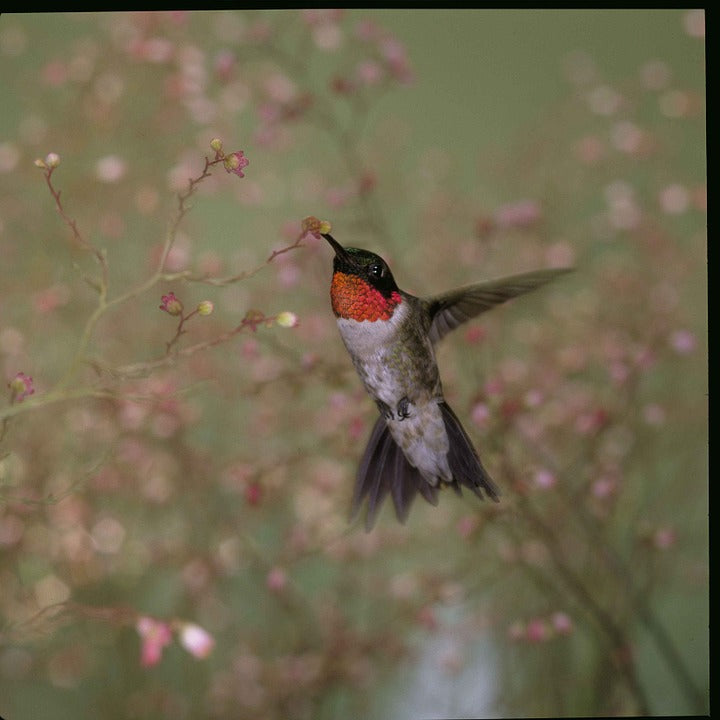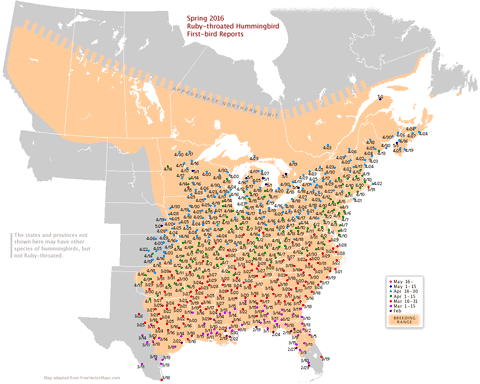Offer
Provide additional details about the offer you're running.
Provide additional details about the offer you're running.
Provide additional details about the offer you're running.

There has been a lot of talk lately about hummingbirds as many customers, friends and family have been asking us where hummingbirds are in their migration and when we should expect to see them. While it is always somewhat difficult to know exactly when they will arrive, there are always a few telltale signs we use to prepare for them.
In addition to the guesswork, reporting tools such as the one found on Hummingbird.net or eBird allow you to see the data entered from birders across North America (and the world!). This data is perhaps, your best bet in anticipating the upcoming arrival of our ruby-throated hummers.

With that in mind, feeding is always a topic of conversation this time of year as folks come in to get new hummingbird feeders, ask us questions about fixing leaking feeders or to acquire some do-it-yourself nectar for their backyard hummingbirds.
When it comes to feeding, nectar is by far the most popular choice, as these small birds will have nothing to do with our seed (even though it’s the best!). While our nectar is phenomenal for hummingbirds, having a much higher food value than sugar, these small birds do a fair bit of feasting on a number of different insects.
With that in mind, we always encourage avid feeders to do their best to offer enough insects in addition to keeping their feeders full of nectar.
The most common way hummingbirds hunt their prey is through hawking, or swooping back and forth through the air or hovering to identify their prey with their stellar vision. Another common method is to simply pluck insects from flowers, leaves, bark and even spider webs.
Keeping these tactics in mind, we always recommend leaving spider webs intact (when possible), refraining from the use of insecticides or pesticides and keeping any fruit-bearing plants healthy. Hummingbirds will not eat the fruit from these plants but will enjoy the variety of insects these fragrant trees and bushes can produce through the summer months.
Utilizing the health benefits of their natural diet of insects, along with plenty of high-quality nectar and water will go a long way in keeping hummingbirds closely situated to your backyard oasis!
High Quality Blend